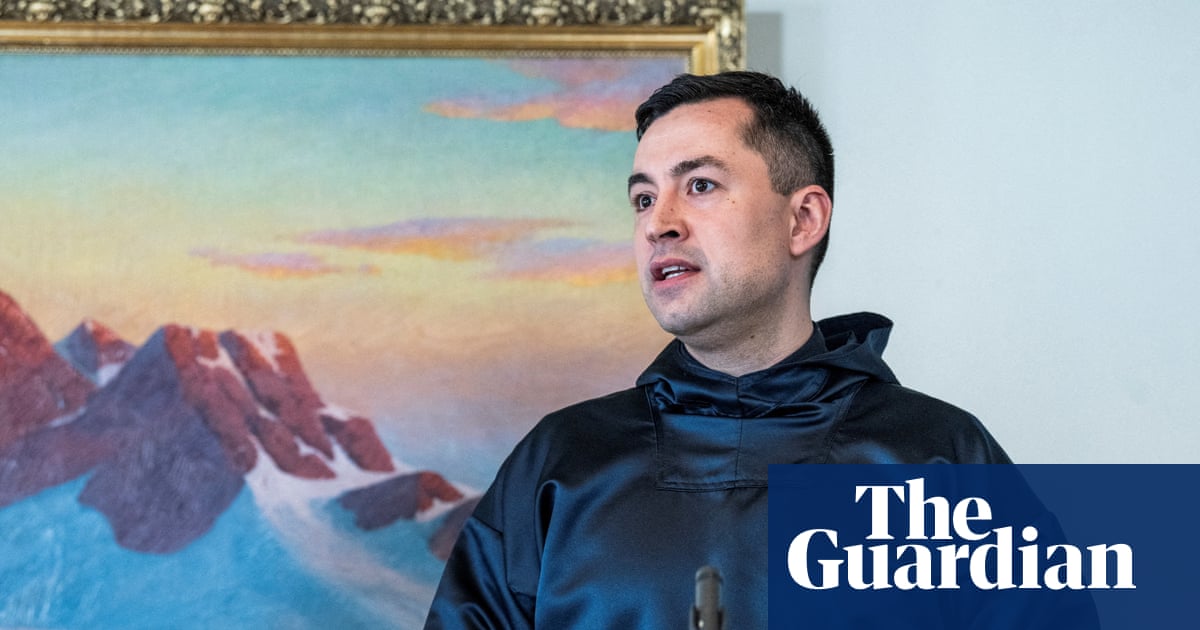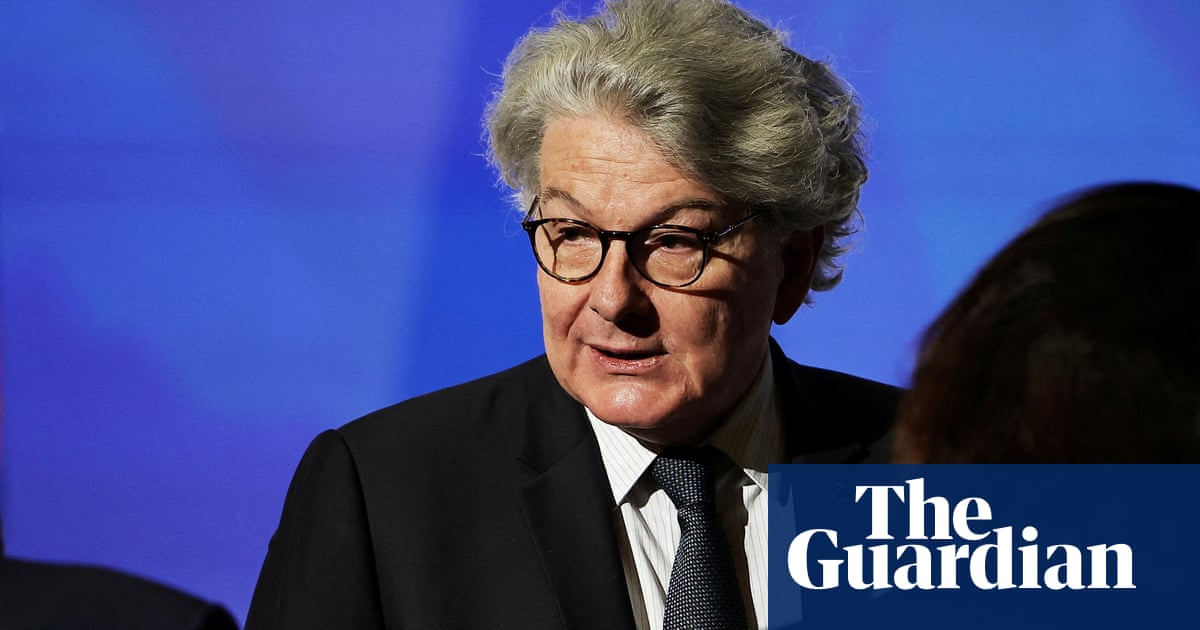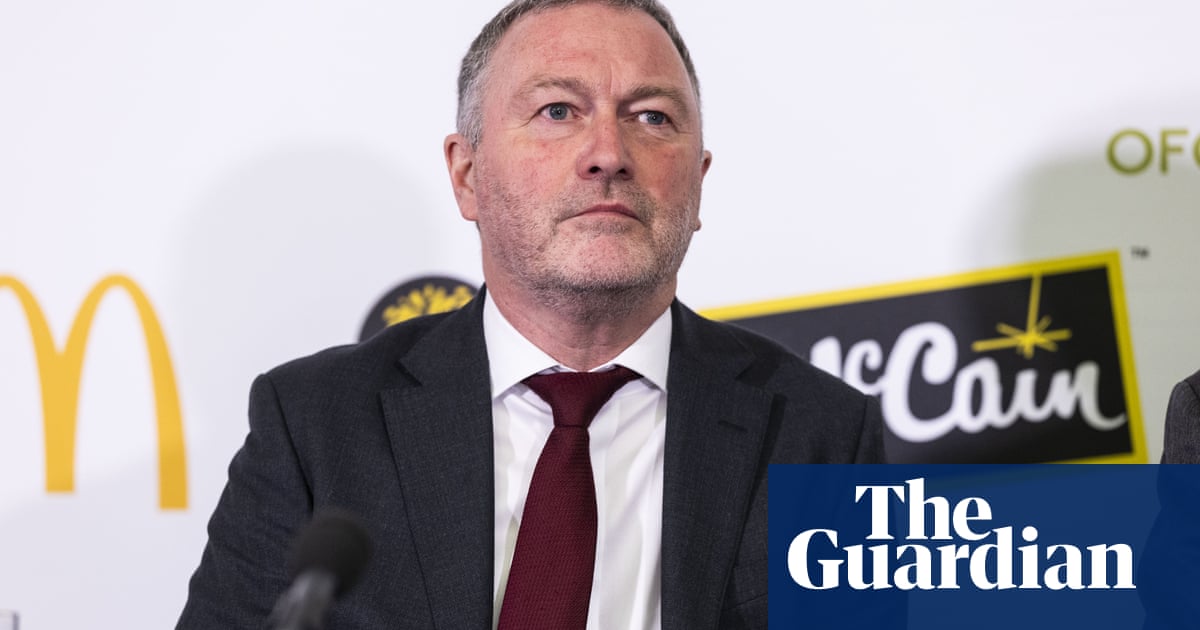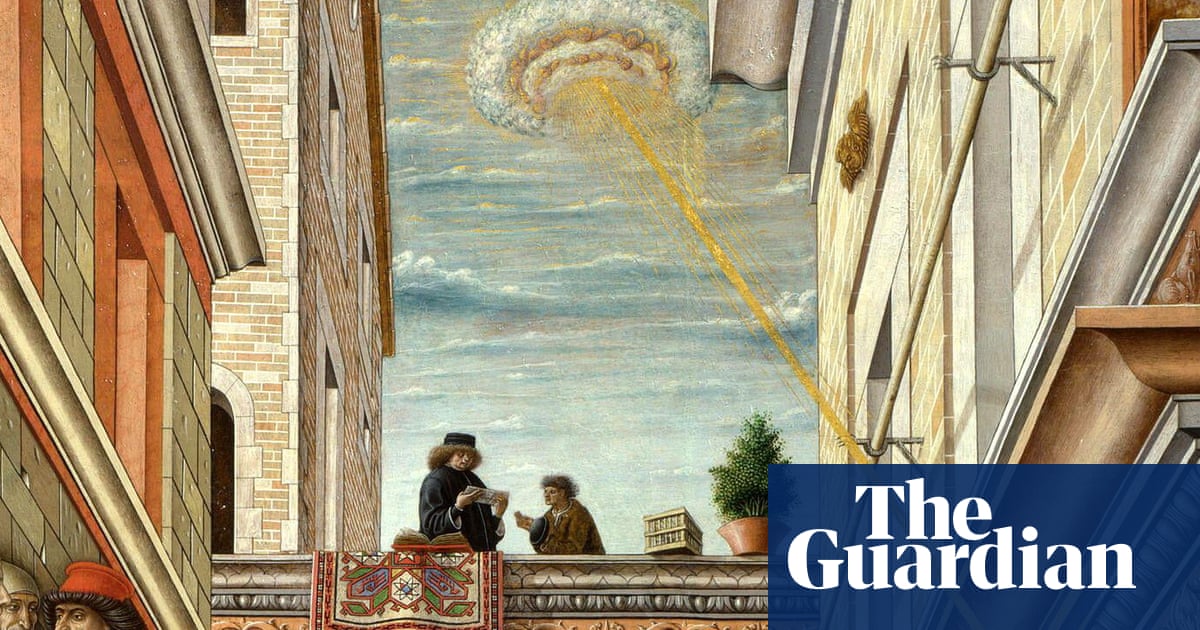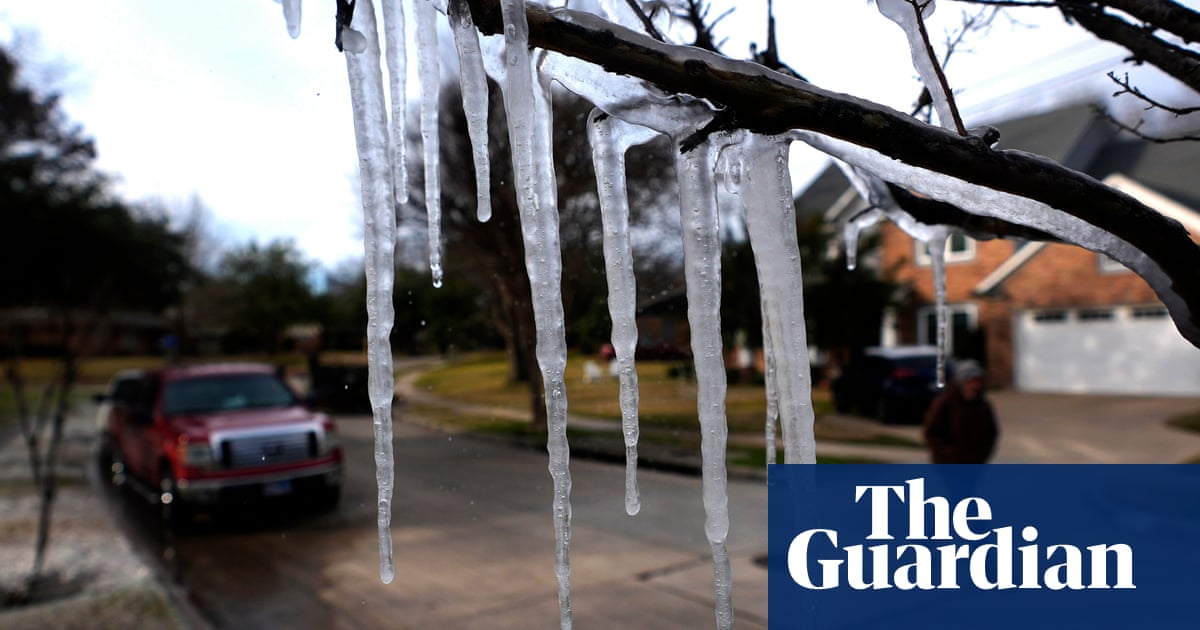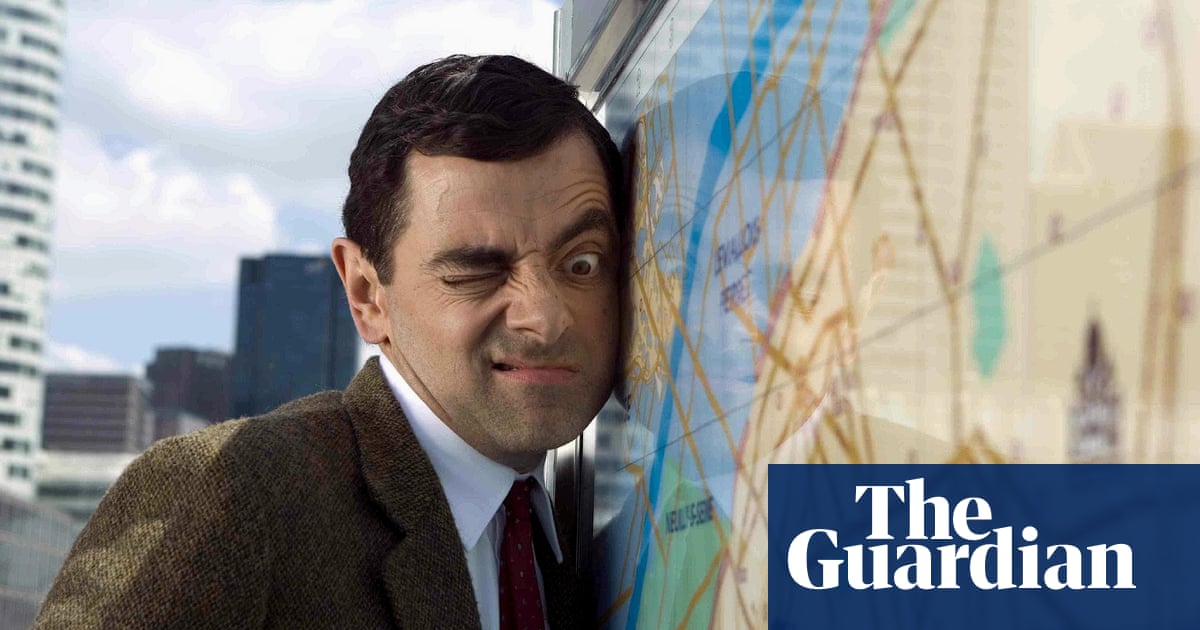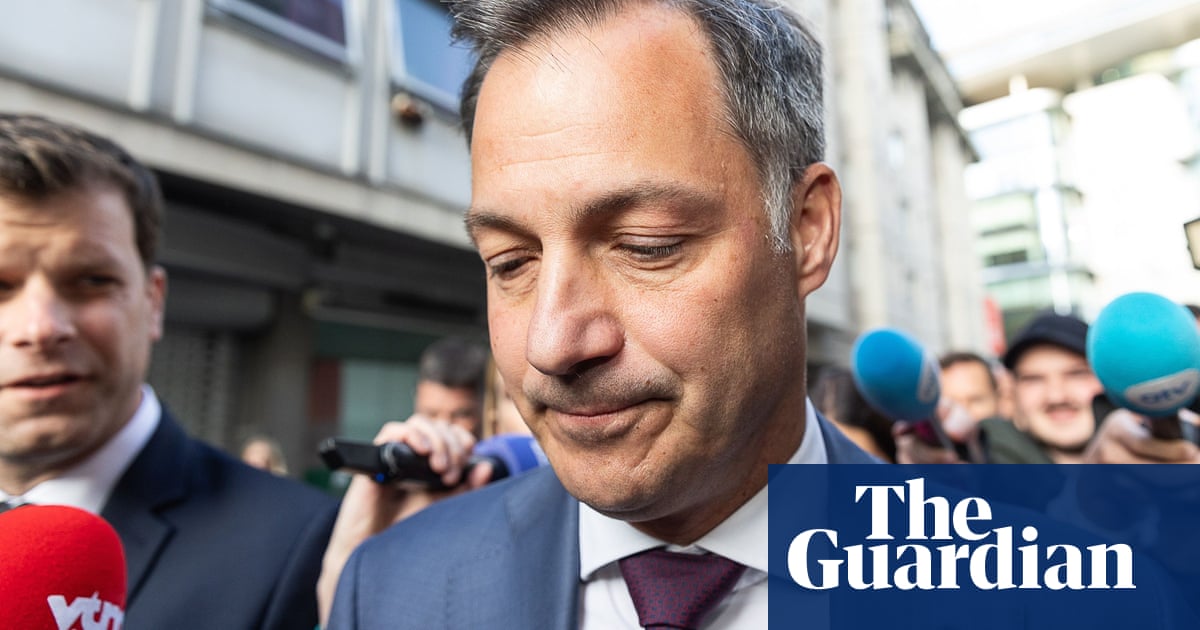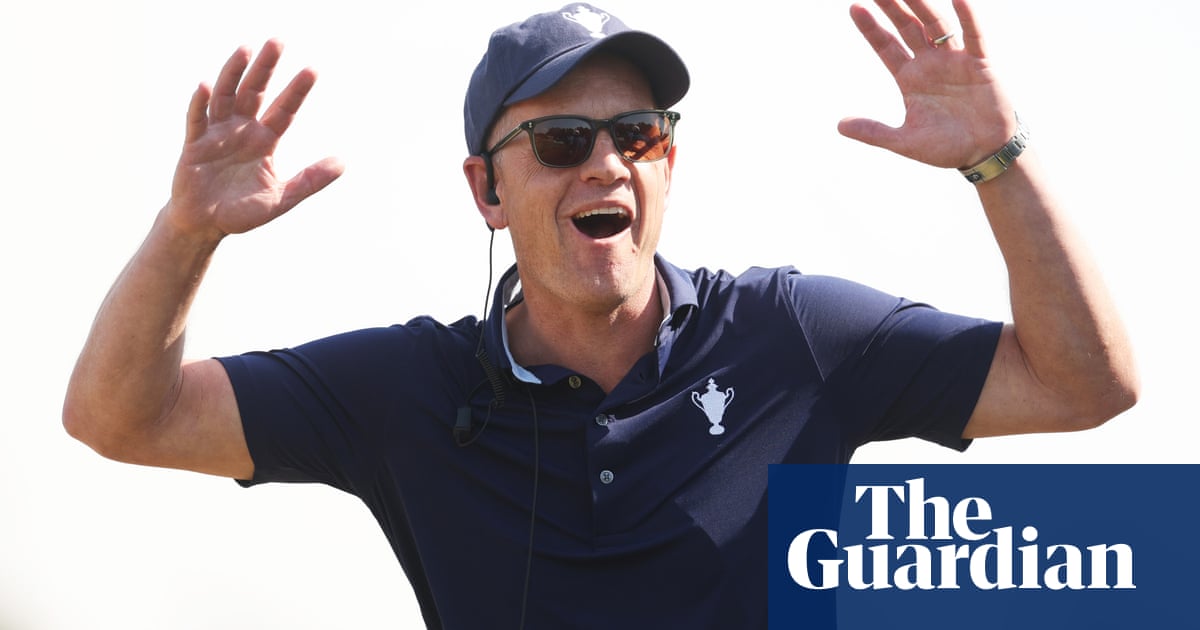Back in July, Charli xcx posted a three-word tweet that some commentators thought might help swing the US election. Arriving the day after Kamala Harris announced her bid for the presidency, Charli’s tweet said simply: “Kamala IS Brat.”
It was a reference to Charli’s latest album, Brat, which had dominated the pop cultural landscape all summer and was loaded with synth-pop bangers, drug references and tales from a life spent getting messy on dancefloors. It wasn’t perhaps the most obvious comparison to make with the then 59-year-old US vice-president, but the overall meaning was clear: Kamala was the presidential candidate with the most energy and authenticity – and had the approval of the pop star of the moment.
The Harris campaign leaned into the endorsement, changing the backdrop of its official X page to the same garish green colour used on the record’s sleeve. It helped mark Harris out as a different, more dynamic candidate than her faltering predecessor: Joe Biden may have been many things but he was most certainly not Brat. Yet as the dust settles on an extremely depressing election result, it appears clear that not only did Charli xcx’s tweet have no meaningful impact on the election result, nor did the endorsement of any celebrity.
Just look at the list of backers lined up for Harris. Taylor Swift, the world’s biggest popstar, came out for her after the September debate, writing that Harris “fights for the rights and causes I believe” and signing off as a “childless cat lady” – a dig at comments made by Donald Trump’s vice-presidential pick JD Vance. Harrison Ford recorded a video, looking grave as he warned voters about what a danger Trump would be to democracy. And then there was Beyoncé, who even appeared at one of Harris’s rallies, alongside fellow Destiny’s Child member Kelly Rowland.
Allow Instagram content?
This article includes content provided by Instagram. We ask for your permission before anything is loaded, as they may be using cookies and other technologies. To view this content, click 'Allow and continue'.
Speaking from the stage, Beyoncé said she was there “as a mother who cares deeply about a world where we have the freedom to control our bodies, a world where we’re not divided”. You can add to these names endorsements from the likes of LeBron James, George Clooney, Bruce Springsteen, Oprah, Lizzo, J-Lo, Eminem, Arnold Schwarzenegger and countless more. Game, set and match to Harris? Hardly.
So why did their voices have so little impact?
Seth Abramovitch, senior writer at the Hollywood Reporter, says that Harris’s nominations were ineffective because they came largely from celebrities who were preaching to the choir: “Oprah, Katy Perry, Beyoncé, Lady Gaga, Madonna, Ariana Grande – these are artists whose audiences (black, female, liberal, queer) were already inclined to vote for Kamala.” The exception to this, he says, was Swift, whose popularity in the worlds of country music and pop means she appeals to both sides of a divided US. “Yet I’d argue her massive influence does not reach two key demographic groups that helped Trump win this time – Latinos and black men.”
Margaretha Bentley is a professor at Arizona State University whose classes have studied the social importance of Swift. “In the academic literature,” she says, “research has shown that, while celebrity endorsements can increase civic engagement and voter registrations, it has not proven to have a direct impact on how people make their voting decisions.”
Bentley likes to ask her students what influences their vote, and the overwhelming majority of responses mention family (especially parents), friends and personal values. “Voters may do more research after a celebrity endorses, but they will vote based on their own values and not necessarily the values of the celebrity endorser.”

Recent data seem to back that up. The vote.gov website received 405,999 visitors in the 24 hours after Swift shared its URL with her followers. “There is robust evidence that celebrities do have a real impact in promoting overall, nonpartisan civic engagement – from encouraging voter registration to poll worker signups,” says Ashley Spillane who authored Celebrities Strengthening Our Culture of Democracy, a Harvard study published in August. But the same report also found that it was hard to quantify whether an increased drive of voters to the polls corresponded with positive outcomes for the endorsed candidate.
So if people are not going to vote in the way the endorsed campaign wants, is there any actual value in seeking out an endorsement? “That’s a great question and one that the research has not fully been able to answer,” says Bentley. “From my standpoint, as an educator, if celebrity endorsements encourage civic engagement, then that is a good thing.”
Of course, courting celebrities is nothing new. Ahead of the 1920 election, Al Jolson led a march of fellow actors through the streets of Ohio in support of Republican Warren G Harding’s bid, and even penned what became the official campaign song. Endorsements from Babe Ruth, Frank Sinatra and Barbra Streisand have all been coveted by the candidates of their day – and possibly with good reason. A 2008 study by Northwestern University, for instance, claimed that Oprah Winfrey’s endorsement of Barack Obama added around a million votes to his final tally.
But that was in a very different political landscape. A poll from YouGov shortly after Swift’s endorsement found that only 8% of voters would be “somewhat” or “much more” likely to vote for Harris – with a surprising 20% saying the endorsement actually made them less likely to vote for her.
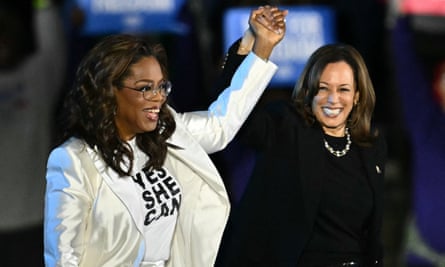
Has there been a recent shift in the way we view celebrity endorsements? Laurence F Maslon, an arts professor at New York University, doesn’t believe so. “I think endorsements have probably always done more for the celebrity than the person being endorsed. I think sometimes it’s a way to hitch your star to somebody who seems to be good for you, and maybe there’s a certain kind of reflected glory in that,” he says. “Even if you look at, say, Sinatra’s endorsement of John F Kennedy, that was probably more of a big deal for Sinatra, because it allowed him to get a seat at the table and he probably thought it would help him achieve that next level of stardom.”
Still, Maslon accepts that there has been a concerted effort by the Republican party over the past few decades to counter the fact that Democrats receive the biggest celebrity endorsements. “There’s probably not a Republican candidate for any office in the last 20 years who didn’t append the word liberal before the word Hollywood when speaking about it,” he says. Ultimately, it means a celebrity endorsement becomes baked into the overall discourse. “People like George Clooney and Robert De Niro, I mean, who cares, frankly?”
Certainly, Republicans have made a great deal out of the idea of “elites” in recent years, feeding into the idea that what works for a celebrity is not necessarily what’s in the best interests of the average person on the street. Beyoncé, the argument goes, is hardly likely to be worrying about the price of gas.
The view that celebrities are so divorced from real life that they’re not worth listening to is encapsulated by a brief Ricky Gervais video posted in June, which resurfaced as a viral meme just before the election: “As a celebrity, I know all about stuff like science and politics so trust me when I tell you who you should vote for,” Gervais says. “If you don’t vote the right way, it’s like a hate crime and that makes me sad and angry and I’ll leave the country and you don’t want that.”
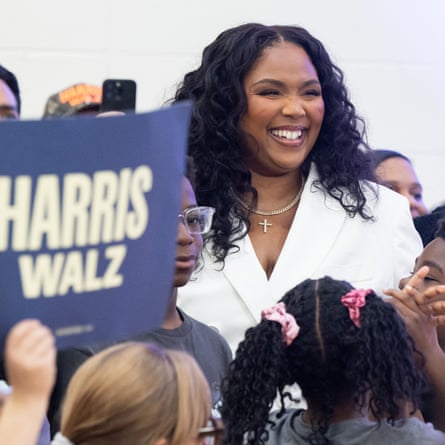
You may find that view of democracy – that we all know so little we should refrain from using our voices – unbelievably cynical. But it taps into a backlash against endorsements that, in recent years, has taken a darker turn with the rise of QAnon and other conspiracy theories regarding the alleged perversions of Hollywood stars. During this year’s cycle, endorsements were often countered online by Trump supporters arguing that the celebrity in question would have been present at parties hosted by Diddy, the rapper and record executive who is now in jail charged with sex trafficking and racketeering.
By linking the two, and implying that liberal celebrities were in some way at least conscious of Diddy’s alleged crimes, they serve to undermine the whole power of celebrity itself, rebranding it from something glitzy and desirable to the face of evil. But then conspiracy theories during elections are nothing new. “There will always be a segment of voters who mistrust celebrity and Hollywood and lean into conspiracy theories,” says Abramovitch.
Despite all this, nobody would be surprised to see politicians clambering for endorsements when the next election comes around. After all, there’s nothing to say they actively harmed Harris’s campaign – she may have done much worse without them. Even Maslon admits that “to have the most famous black female singer in the world not endorse Harris probably would have been a big negative, just by implication”.
Ultimately, Maslon says, there is really only one celebrity endorsement that has been shown to make a huge difference in US elections – and that’s when the candidate is already a celebrity. “And so they endorse themselves!” He cites George Murphy, the 1940s movie star who ran successfully to become the senator for California, paving the way for the likes of Ronald Reagan, Schwarzenegger and of course Trump. “It seems to happen a lot in the Republican party,” he says.
So if Swift or Beyoncé really want their celebrity star power to have an effect on the polls, perhaps they’ll have to ditch the endorsements and run for office themselves. Just not for the party they currently support.

.png) 2 months ago
40
2 months ago
40

